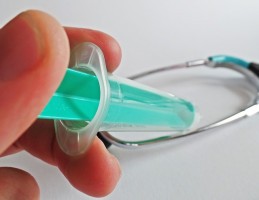
The National Institute for Health and Care Excellence (NICE) has issued final draft guidance (MA review of TA554), recommending tisagenlecleucel for treating paediatric and young adults up to and including the age of 25 with B-cell acute lymphoblastic leukaemia (ALL) that is refractory, in relapse post-transplant or in second or later relapse.
ALL is a rare type of cancer affecting the blood and bone marrow, caused by the overproduction of lymphoblasts and develops rapidly. The disease is most common among young children, with the B-cell category of ALL accounting for 78% of cases in children.
Responding to the recommendation, Charlotte Crowley, Policy and Evidence Manager of Leukaemia Care said: “Today’s decision will ensure ALL patients will continue to access this treatment. These patients have few other options for treatment and CAR-T therapies have revolutionised the treatment of these patients already. We are pleased that NICE has been able to recommend this treatment for the longer term, giving patients and doctors much greater clarity on what is available if they do find themselves in this position.”
The recommendation was based on longer follow-up clinical data from the ELIANA, ENSIGN and B2101J trials that were initially used at approval in 2018, as well as new data collected during its use through the Cancer Drugs Fund (CDF).
“During its time in the CDF, tisagenlecleucel has changed the way in which people with relapsed or refractory B-ALL have treatment,” said Dr Sara Ghorashian from Great Ormond Street Hospital. “It offers a chance of durable remissions and prolonged overall survival for people who often have no other option. The CDF has enabled us to build robust real-world evidence and I’m delighted that NICE has recommended that children and young adults should continue to have access to this treatment.”
“Novartis have been working with NHS England to maintain access to CAR-T therapy in the areas of highest unmet need since its first approval in 2018,” said Marie-Andrée Gamache, President and Managing Director of Novartis UK and Ireland. “Cell and gene therapies are another example of how we’re reimagining medicine to make a real difference to patients’ lives. While in the Cancer Drugs Fund, tisagenlecleucel has been used to treat 133 children and young adults with a potentially deadly form of cancer and today’s NICE recommendation provides the opportunity for it to continue being a treatment option for many more.”
Source: Novartis
The World Cancer Declaration recognises that to make major reductions in premature deaths, innovative education and training opportunities for healthcare workers in all disciplines of cancer control need to improve significantly.
ecancer plays a critical part in improving access to education for medical professionals.
Every day we help doctors, nurses, patients and their advocates to further their knowledge and improve the quality of care. Please make a donation to support our ongoing work.
Thank you for your support.